Today it’s the mothers and wives of the soldiers on the front line of the war in Ukraine who march in the streets and stand silently outside the very rare Putin public appearances.
Thirty years ago, a different set of mothers organized themselves into the Mothers of Soldiers of Russia to protest the Chechen war in which their sons were sent to fight, clouded in secrecy and official denials. They were asking a single question: Where is my son? I first wrote about them in The San Mateo Times in 1995: They were lined up across the square facing the exit from the busy Arbatskaya Metro station in the business center of this bustling, hustling city. The crowds rushing to work couldn’t miss them, their shouts or the signs they carried. The words varied from woman to woman, but the messages were the same: “Where is my son?” These are the Mothers of the Soldiers of Russia, and they have been standing vigil in the streets of Moscow daily since the invasion of Chechnya began, sometimes silently with the portraits of their sons held in front of them, sometimes noisily as they try to make the generals meeting inside buildings nearby aware of their presence. Today’s mothers of the soldiers of Russia don’t have to depend on the single telephone line at the Ministry of Defense to try to find out about their sons. We live in the Information Age, and today’s mothers and wives are getting lots of information, much of it awful, directly from their sons and husbands, via phone calls, photos, and videos from the front lines. The Guardian of London reported on calls they intercepted on a single day in late November. “No one feeds us anything, mum. Our supply is s***, to be honest. We draw water from puddles, then we strain it and drink it.” Another soldier described looting bombed-out Ukrainian kitchens for food. He told his mother he knew it was wrong, but he was starving. They quoted another call to a grandmother from her grandson: “I’m in a sleeping bag, all wet, coughing, generally f***** up, Baba. We were all allowed to be slaughtered.” He said he fled from the bloodshed with three others, and they were contemplating surrender. She begged him not to let himself be taken prisoner, reminding him that returning World War II prisoners of war were sent to the gulags in Siberia or executed on Stalin’s orders. He believed they had to have been collaborators to have survived. She was convinced Putin would do the same. From the very first day of the invasion, nearly a year ago, calls on supposedly forfeited smart phones have told these mothers of Russia’s men on the front lines more than they wanted to know. But they cling to them because when the calls stop, all hope is lost. Meduza, a Russian news organization that now reports from Riga, Latvia, said that “Russian soldiers in Ukraine have spoken on open cellphone lines, often revealing their positions and exposing the disarray in their ranks.” Or the mothers hear of it from the pro-war bloggers embedded with Russian ground units. These bloggers, who use a dedicated Telegram channel, have taken on the role of war correspondents or journalists now that Putin has throttled the functioning press within Russia. They report pretty accurately what’s happening at the front and don’t hesitate to heap scorn on the imbecilic decisions of the high command. After the New Year’s Day shelling of a Russian base at Makiivka in western Russia, they demanded to know what military genius would billet troops in the upper floors of a school dormitory with an ammunition storehouse in the basement. They scoffed at the Kremlin’s count of 64 dead Russians, suggesting that the number had to be closer to 200 with many more injured. They demanded accountability—and a week later Putin reshuffled the high command, once again. Just as the Mothers of Soldiers of Russia, who formalized their efforts 30 years ago to bring their sons home alive, today’s mothers and grandmothers and wives are sending signed letters to Putin with copies to social media and the press. But their question today is different—not “Where is my son?” but “Why is he there?”
2 Comments
After Russia's humiliating rout from northeastern Ukraine, it appeared that Putin was preparing to solidify Russia's positions in the Donbas and dig in for the winter. An unquiet stalemate of sorts was likely to drag on as the anniversary of the Feb. 24 invasion rolled around. Then everything changed on Sept. 21. After seven months of denying that the “special military operation” to cleanse Ukraine of its Nazi leadership would have any impact on the lives of ordinary Russians, Putin announced a partial mobilization that would call 300,000 former military into the army. The chaos that followed pulled the scab off the lie that the people of Russia supported the invasion of Ukraine. Thousands of young men prepared to flee the country. The line of cars at the border crossing into Georgia was 24 hours long. Airline tickets to totally random cities in Kazakhstan were selling for $20,000. Young men bicycled through forest paths to safety in Finland. In 50 cities throughout the 11 time zones of Russia, more than 3,000 were arrested for protesting the call-up (and subsequently were handed draft notices in their jail cells!) Forty members of regional governments signed an official objection to the action, and a military recruitment officer was shot in a Siberian city. This was an action that Putin resisted for months. Russia watchers had expected a mobilization announcement on Victory Day, May 9, after the initial invasion on Feb. 24 failed to take Kyiv and oust the government. Or Putin could have used the national holiday celebrating the end of World War II to claim victory in Ukraine and end the military action. In fact, he barely mentioned the “special military operation” in his speech in Red Square. However, the recent Ukrainian offensive that chased Russian forces from thousands of square miles of territory in northeastern Ukraine, as well as the grinding Russian effort to secure the Donbas region and prepare it for a sham annexation, depleted the already underprepared Russian army. And the West mustered a remarkable and continuing resolve to isolate Russia in the face of the invasion. Still, he resisted mobilization because he knew that the widely touted support for the war across the country was paper thin. And he was spot-on. So what pushed him to take such a suicidal step? Certainly not the sporadic public outbursts of protest his police have been so effective at stomping out. Probably not the stifling sanctions of the West, as onerous as they’ve been. And absolutely not out of any empathy for the ethnic autonomous regions of the east that have been drained of men to support the war while upsetting the smallest number of people. No, what brought him, kicking and screaming, to the announcement of Sept. 21 were the hawks of Russia who enthusiastically supported the war and demanded a total commitment to victory. It started with the bloggers who were embedded with Russian battalions. They were cheerleaders who exaggerated the advances and ignored the failures on the battlefield, and they were largely responsible for keeping the Russian public unruffled. Then this summer the cheerleaders began to write about major screw-ups. (Their battlefield blogs used a much stronger word, but I’m still of the generation that frowns on that.) They wrote about hungry soldiers looting kitchens for food and stupid decisions that cost dozens of lives. They began asking why so many generals had been killed and why they were on the front lines in the first place. And they began listing the names of the dead—a particularly significant factor when you consider that the Russians seldom repatriate the bodies of foot soldiers killed. Commentators on state television began to parrot the bloggers and that was probably most telling of all since wide swaths of the enormous country have no internet service and state TV is the only source of information. Then one of those television commentators with a particularly hawkish bent was assassinated in the middle of her very posh Moscow suburb. That prompted lots of speculation that Ukrainians were infiltrating the educated and sophisticated cities of European Russia. Now the people who had Putin’s ear began to press for an all-out victory in Ukraine and that required more cannon fodder. As I write, the chaos throughout the country rages on while thousands of men are fleeing rather than take up arms in a war they see as Putin's Folly. Michelle Carter is the former managing editor of the San Mateo Times. Throughout 1995, she traveled across the 11 time zones of the world’s largest country as the U.S. Information Agency’s Journalist-in-Residence in Russia. She is the author of two books, From Under the Russian Snow (Bedazzled Ink Publishers, 2017) and Children of Chernobyl: Raising Hope From the Ashes (Augsburg, 1993).
The novel Riverfinger Women, written by Elana Dykewomon at the age of 24, was a book I was avidly reading at the young age of 21 in college in upstate New York. I was coming out as a lesbian and a feminist in the early 80s. I remember her main character, Inez Riverfingers, and I remember underlining and highlighting the heck out of that book. It was very meaningful to me at that time in my life. Hearing vividly about the lived experiences of young lesbians helped me to come out. Back then, I was fervently reading many lesbian novels published by women's presses, which were so numerous then. Those books made all the difference for me. They helped to direct my future path in life. Now decades later, ironically I live across the street from Elana Dykewomon's home, whose characteristically purple painted house with a decorative rainbow address on the front is well-known in this Oakland, California neighborhood. Sadly for our community she just passed at age 72. We mourn the loss of a novelist, an activist, and a very important voice in our lesbian community. Thank you Elana. I never would have thought life would bring me to this point forty years later, living right across the street from you. It's ironic and suggests we need to cherish every moment of our brief time here. La vita e bella! Thanks Elana for informing my journey as a young lesbian, as you now embark on a new journey of your own. Giovanna Capone is a poet, fiction writer, playwright, editor, and filmmaker. She was raised in an Italian American neighborhood near the Bronx, whose strong immigrant influence still resonates in her life. She lives in the San Francisco Bay Area. Among her work is the poetry collection, In My Neighborhood: Poetry & Prose from an Italian-American and Dispatches from Lesbian America: 42 Short Stories & Memoir by Lesbian Writers.
In the mystery genre, the major theme, or the underlying idea an author conveys, can almost always be crime does not pay. However, after a writers' workshop on motifs, I've concluded that minor themes and their motifs, (recurring images, objects or ideas that highlight the theme), can lead to greater understanding of the story's overall meaning as well as develop its characters. In One Drop, sister and brother Ladonis and HeartTrouble are reluctant sleuths in contemporary New Orleans. Ladonis, armed with an MBA and what her younger brother calls a high falootin' corporate job, gets entangled in the middle of murder and mayhem, supposedly to help her co-worker, but more than likely to propel her up the corporate ladder. Only she needs her high-school dropout, small-time con-artist brother, HeartTrouble, to help her find her way out of a hotbed of criminal activity. While the plot turns the siblings and the readers into detectives vying to solve a traditional mystery puzzle and figure out whodunnit, the minor theme, "family" can be described as this story's heartbeat. Throughout the twists and turns, the sibling rivalry between the main characters intensifies the red herrings and ups the suspense as well as the impact of resolution for readers. In fact, all action is incumbent upon an in-your-face argument between HeartTrouble and Ladonis. (motive) "If you got half a brain, which you act like you ain't sometimes," HeartTrouble said to his sister. "You'd go out and buy that plywood like I've been tellin' you to do and board up all these glass doors and windows you got in this place. That Katrina storm supposed to be the real deal. That makes Katrina more important than some white girl." "Boy, move out my way. I have to find out what happened." These kind of salient dialogue interactions occur throughout the story, particularly when Ladonis seeks to engage her brother in what he calls, white-folk shit. (motif) The arguments not only highlight individual character traits of Ladonis and HeartTrouble, but also show readers the impact their sibling rivalry has on the nature of their family dynamic, which is, despite differences they are there for one another. (theme) Although I'd learned the difference between motif and and motive, it wasn't until the topic came up in my writers' workshop that I realized I'd captured the concept in One Drop. The experience reminded the writer in me that there are just as many ways to capture a writing concept as there are stories to tell. For example, no matter how many times I read or watch Jane Austen's Pride and Predudice, there is always something new for me to learn either about a character, theme, or about the plot. Another reason to keep writing mysteries and to keep reading literature. There's always something to learn from the motives and motifs of life's realities. A native of New Orleans, Alice Wilson-Fried attended Tulane University and later worked in Public Relations at the Delta Queen Steamboat Company. For the past thirty years, Alice has lived in California.She has two published works, a nonfiction entitled Menopause, Sisterhood, and Tennis, and the first of a mystery trilogy called Outside Child, set in New Orleans. One Drop, is the second trilogy installment and has the main characters caught in the middle of murder and mayhem while struggling to escape Hurricane Katrina.
No doubt you’ve heard that McDonald’s is selling its restaurants in Russia to a Siberian oil magnate who will reopen them without the Golden Arches or the McDonald’s name. Sounds like still another piece of fallout from the brutal invasion of Ukraine, a business decision in the face of egregious circumstances. In his announcement, the CEO of McDonald’s said, we can’t “ignore the humanitarian crisis caused by the war in Ukraine. And it is impossible to imagine the Golden Arches representing the same hope and promise that led us to enter the Russian market 32 years ago.” But to see it as business as usual would ignore the life-altering impact the opening of the first McDonald’s in the Soviet Union had on Russian society thirty-two years ago. And how the disappearance of its 847 stores across all eleven times zones of the planet’s largest country will surely send tremors through it all over again. I was in Moscow in 1990, not long after the opening of that first McDonald’s. The rest of the world viewed the opening as evidence of a thaw in the Cold War and a crack in the armor that separated the USSR from the West. And for me, an American journalist reporting on glasnost (the opening of the Soviet Union under Mikhail Gorbachev) the block-long lines of Muscovites waiting for their chance to sample a Big Mac was too big a story to miss. I bundled up and joined the line that wound around Pushkin Square in downtown Moscow. With Russians inching forward in front of me and behind, I had a captive audience for my questions. The young couple in front of me was there out of curiosity, to see what the fuss was all about. The middle-aged woman behind me had been twice before, and she told the kids ahead of me that this visit would bend their minds! What I found in that McDonald’s bent my mind as well. I’d been expecting the usual Golden Arches—draped in Soviet drab. Instead, under bright lights and the familiar overhead menus stood an army of young men and women in spotless uniforms and McDonald’s caps who SMILED at each customer and asked, “What can I get for you today?” Some of the customers even smiled back! The menu included all the usual McDonald’s fare. Their names were transliterated versions of “Big Mac” or “cheeseburger,” but French fries were the Russian equivalents for “French potatoes.” One oddity was the Russian interpretation for “chocolate milk shake” which translated to “chocolate cocktail.” Standing there in all that glitter and gloss, Muscovites were star-struck. Mickey D had arrived in the Soviet Union, bringing American optimism along for the ride. For the Soviet consumer who was used to the sulking, surly attendants at state stores, McDonald’s was transformative. At the same time, McDonald’s launched another phenomenon—the introduction of clean public restrooms! I once threatened to write a very thin book listing all the clean bathrooms in Moscow (just one, at the Hotel Ukraina!). But after McDonald’s and Pizza Hut and other western chains took root, clean restrooms were expected in any restaurant. Talk about a gift to humanity! How did McDonald’s manage to create the American fast-food experience in the very gray Moscow of 1990? Very intentionally. Early on, they had to import beef from Germany since what was available locally didn’t meet their standards. Eventually they opted to raise their own cattle in Russia. They trained their employees at a special school where smiles and good cheer were part of the required curriculum. And once they established their foothold, eating out in Moscow was forever changed. The Soviet Union fell within months of the opening of that first McDonald’s (though I don’t think they had anything to do with that!), and Russian society was ready to embrace the transformation. When I moved to Moscow in 1995, my flat overlooking the Moscow River was just two blocks from the new McDonald’s on the Arbat at the Garden Ring. Once or twice a month, I would stop on at the end of my workday at the Russian American Press Information Office and carry a Big Mac, fries, and a chocolate “cocktail” home in my “perhaps” bag for dinner. It helped stave off the homesickness of this American ex-pat (who seldom ever stopped at the Golden Arches at home). That same McDonald’s on the Arbat was thriving when I was last in Moscow four years ago. And you could use an app to place your order at the store or call the Russian version of Door Dash to bring it to your flat! Now they’re all gone—but what the Golden Arches wrought in Russia won’t be so easy to erase. Michelle Carter is the former managing editor of the San Mateo Times. Throughout 1995, she traveled across the 11 time zones of the world’s largest country as the U.S. Information Agency’s Journalist-in-Residence in Russia. She is the author of two books, From Under the Russian Snow (Bedazzled Ink Publishers, 2017) and Children of Chernobyl: Raising Hope From the Ashes (Augsburg, 1993).
Many friends want to know what’s happened to the free press in Russia that I was working so hard to establish as the USIA journalist-in-residence in Russia in 1995. For an up-to-date answer to that question, Monday I emailed one of the journalists I worked with that year. Here’s his response: “If you consume only Russian government media, and that is probably true for about 70 percent of Russians now, you wouldn’t even know there’s a war going on. It’s quite absurd watching this coverage. It’s like a parallel reality where you see a news piece about the Russian army liberating one Ukrainian town after another. They’re just making this up as they go. Not a single news story would mention that there was a war going on in Ukraine. “Not long ago I talked to a few editors at all these propaganda news networks, leading up to the invasion. Right now, all of them are so demoralized. They’re telling me that they’re absolutely devastated. Their souls are crushed.” And so many of them are simply leaving, as my friend has done. He’s now working as a journalist for the Meduza news website in Latvia. “I can’t go back to Russia until Putin is either not alive or not the head of the Kremlin. I love my country. I want to live there. I love Russia. I love my home. I love my parents. But I have to be realistic about this. “The day after I left, on March 4, the Russian parliament, in kind of an extraordinary session of both chambers, which rarely happens, passed a bill that effectively criminalized my work. It’s a law that punishes journalists for disseminating false information about the Russian military. The same day that we arrived in Latvia, we found out that our website was blocked for disseminating false information about the Russian special operation in Ukraine. It was obvious we were banned for calling the war a war. That’s not a word you’ll ever hear on the Russian government’s airwaves anywhere. “Reporting on the war is basically what I’m doing 24/7 now. We’re working six-day weeks and 14-15-hour days. This is our entire mission now.” Those thousands of Russians who marched in the streets of Moscow and St. Petersburg, chanting “No to war!” testify that Putin may have overplayed his hand this time. Those of you who have read my book, From Under the Russian Snow, which I discussed in this space three years ago, know that Anna Sharogradskaya is something of a hero to me. She directs the Regional Press Institute in St. Petersburg, where her efforts to instill the ethics of a free press to young journalists—despite the current conditions—have drawn the attention of the authorities. She’s been dragged into court time after time and officially declared a foreign agent, which means state auditors can come into her office any time and go through her laptop and trash her files without notice. On the day of the invasion, she spit in Putin’s eye with a screed against the war posted on Facebook. And now, at age 80, she’s in the eye of the hurricane once again. This morning she texted me that she’s just been informed that “the Russian authorities claim I do not have the legal right to leave the country. It appears I’m trapped.” Because I have so many friends in Russia, including three godchildren, I worry about how the rest of the world has begun to paint all Russians with the same broad brush. Nicholas Kristoff of the New York Times expressed my views in an opinion piece after Russian athletes were banned from Wimbledon and the Boston Marathon: “I understand the need to express revulsion at what Russia is doing. But I argue that we should be wary of treating every Russian citizen as the enemy, especially when so many Russians have been heroically risking arrest to protest the war. “I also worry that at a practical level, we should be peeling ordinary Russians away from Putin, and measures such as this simply lump all Russians together with Putin in a way that helps him.” And what of the Russians who lack the courage to speak out? They are huddled at home, convinced that they will pay a substantial price—in blood and treasure—for this war, for Putin’s folly. Michelle Carter is the former managing editor of the San Mateo Times. Throughout 1995, she travelled across the 11 time zones of the world’s largest country as the U.S. Information Agency’s Journalist-in-Residence in Russia. She is the author of two books, From Under the Russian Snow (Bedazzled Ink Publishers, 2017) and Children of Chernobyl: Raising Hope From the Ashes (Augsburg, 1993).
You are both seekers. What does spirituality mean to you? And in what ways does that manifest in your books?Haviva: I am a seeker. I have been for as long as I remember. But it became especially urgent when I was diagnosed at age sixteen with a degenerative genetic muscular disease; I felt abandoned by God and was looking desperately for order and control. I grew up Orthodox Jewish, so that system was the only one I had for meaning making, but that framework did not suit my free spirited soul. My spirit wanted to be free, to surrender to the mystery, but that was a terrifying notion. I spent many years looking for validation and answers outside myself, trying to contort myself to fit into the rigidity of traditional Judaism, until I realized this was spiritual bypass. I would only find inner peace if I healed my sacred wound, if I addressed my spiritual need for life to be fair. It’s about learning to surrender to the Universe, to What Is and Will Be, to the Flow of Life, not to be protected from suffering but to be held in your suffering.
You both live in Israel, and the reality in Israel features in your books, but Orna was born and raised in Israel and Haviva moved there only in her twenties. Do you think this affects your writing?Haviva: Yes, I do. One reason I wrote Hope Valley was to explore the idea of what it is like to move to Israel out of Zionist ideology only to find after moving there that the narrative you were told is only part of the story. That is what happened to Tikvah and is part of her struggle. This theme is also part of my memoir, since that is my reality as well. I am not living in a house that once belonged to Palestinians, and I do not have a diary hidden in my house written by a man in 1948. That is all in Hope Valley, and that is all fiction. I chose that scenario to heighten the tension and dramatize the conflict in this microcosmic way. But these are issues I, myself, struggle with. People who were born here into the conflict face this as well, but in a different way, because they did not pick up and move and choose to make this their home out of some kind of righteous mission. I did. And I do still believe that Jews have a right to be here. But so do Palestinians. And that is the challenge. How can we recognize each other’s narratives, acknowledge each other’s pain, and find a way to live here together in peace? Orna: I was born in Israel, just over a decade after the establishment of the state, so I was born into the conflict, a part of it, whether I wanted to be or not. The Palestinian Israeli conflict has always played a part in my life, looming ominously in the background. As a small child I was always told never to pick anything up off the ground, to beware of any object left unattended, etc. Later, it was me warning my kids. Be aware. Be vigilant. Pay attention to your surroundings, to unknown people, objects. Even buses were a no-no for many years. Since it has always been part of the background of my life, the conflict is also part of the scenery of my work, but just like I have never let myself be defined by it, my work is not defined by it either. I am not an activist and my writing is not a call for action, although it always tries to offer an optimistic, hopeful outlook. In reality, I live in Jaffa, a mixed city, striving for harmony and co-existence, the same aspects I try to stress in my writing. Towards the end of the novel, Lily discusses the conflict: “Every now and then violence erupts between them, as Allah and Hashem go at it once again. I don’t think it will ever end.” In my writing, I try to look at the good, at the unifying aspects instead of the differences. I believe it is only the individual who can make a difference, who can bring about change. Identity is a big theme in all three books. Can you expand on that? Haviva: In Hope Valley, both Tikvah and Ruby learn to stretch themselves beyond their cultural boundaries and connect on a basic human level. There is also a backstory of a love affair between Ruby’s father, Jamal, the father of the lost diary, and Marie, a Holocaust survivor who was hidden from the Nazis in a convent in Belgium and then taken to Palestine (which then became Israel) after the war. She struggles with her identity, as does Jamal, who has a Christian mother and a Muslim father. That is a big theme in the book. Mixed breeds. The dog, Cane, who is also a main character in the book, is also a mixed breed. Others are, too, but I do not want to give away the end. Suffice it to say, one message of the book is that we are all connected. In Dreaming Against the Current, identity also plays an important role, as it is on one level about my shedding of various constructed identities in order to discover my most pure, essential one, by listening to my soul. Orna: The Pink Balloon is an attempt to wake people up, to make them question who they really are. The book does this by challenging our concept of identity through the story of a young woman and a pink balloon. The pink balloon is a meditation technique the protagonist learned as a child, and is the only constant in her life, helping her to navigate between her assumed identities, as she moves through different continents, cultures, and religions. The question “Who am I?” reverberates throughout the book. Lily is born in Venice Beach, California to a Palestinian mother and an Israeli father. When they separate, she goes to live with her mother’s family in a conservative Palestinian community, where she becomes Lila and is raised as a Muslim. After her mother dies, her father takes her to Israel, where he has built himself a new life in an illegal settlement on the West Bank. Here she becomes Lia and converts to Judaism. When she realizes an arranged marriage is in the cards, she runs away to India, where she feels her parents’ as well as her own story, really began. She creates a new identity and calls herself Leela, as she embarks on a journey of discovery, bent on finally finding out who she really is. Forced by the events of her life to repeatedly construct a new identity, only to later deconstruct it, she finally realizes that she was never who she thought she was and is set free to be whoever and whatever she chooses to be. Why do you write? What do you want your writing to bring? Haviva: I write because I love it. I do not watch television. I read and write. I also love films, but I only watch them occasionally. Reading and writing are my fallback activities when I am not working as a spiritual companion, officiating ceremony at the mikveh (ritual immersion pool) I run on my kibbutz, swimming, walking in nature, or working with mine and other people’s dreams. That is, putting aside being with family and friends. I love the writing process. I find it spiritual. It is my favored form of expression. And it is also a process. I discover as I write. Things emerge. I don’t sit down with a definite plan. I sit down with an idea, a thought, an image, a scene, but it happens as I write. It’s magical. I feel a divine connection when I write. There are better days and worse days. Not every day feels so inspired. But when it does, it can be profound. It feels like I am spiritually aligned, doing what I am meant to be doing in this world. I also write to process my own feelings. And to send a message to the world, or at least to my readers. As much as I love the writing process in and of itself, I also write for others, not just myself. When people read my work and tell me how it touches them, that is definitely part of the reason I write. It’s not all of it, but it is a big part of it. Orna: Writing has always been my vehicle, my way of making sense of the world. It has always given me a perspective, a sense of order, a clarity. Those are the personal gifts writing has given me, and I’d like to use them wisely. Mostly I’d like my writing to present a different voice, a voice I feel is sorely lacking. Darkness has loomed large in Western literature, from Baudelaire’s Fleurs du mal, Eliot’s Wasteland and Conrad’s Heart of Darkness, just to name a few. And it’s true. The world is replete with cruelty and ugliness. But there is also a great light, a huge pillar of light marching besides the dark. And it is growing. It is growing by leaps and bounds as more and more people try to better themselves, choosing good over evil. Western literature has become focused on the black, threatening aspects of the world, neglecting the good sprouting up all around us. I’d like my writing to be a celebration, a small beacon reflecting and magnifying the light I see shining besides the dark. Visit Haviva Ner-David's author page and Orna Taub's author page to learn more about them and their books.
People keep asking me: Do you think the Russian people know what’s going on? Do they know that Putin has sent the Russian Army to invade Ukraine? They know. They may not know the full extent of Putin’s folly, but they know their country has become a pariah in the community of nations. They know that they are going to suffer in blood and treasure for this naked aggression that the Russian media is forbidden to call “war.” They know that Russian celebrities, opera singers and Bolshoi dancers have shouted, "No to war!" They know that Echo Moscow and TV Rain have disappeared from the air. They know when they hear from their brothers and sisters and cousins and grandparents in Ukraine, and they fear for them. They know that their sons thought they were heading west for training exercises and now they know they might come home in body bags or their ashes in plastic bags. They know that the ruble has lost half its value, and they know they can't get out of the country no matter how much they would like to. They know and they are very worried. They know even if they will never admit it and even berate those who will say it out loud. But they know. Those who grew up in the Soviet period learned at their mother’s knee how to know something they could never acknowledge to another soul. They knew you could get real meat at the shoe store in the alley two streets over when there was only pickled pigs feet in the neighborhood shop. They knew when a neighbor disappeared in the night. They knew when a colleague slipped “samizdat” (an unauthorized manuscript or censored document) into his bag. They knew but they could never show in any way that they knew. They had to “unknow” it — and they got very good at it. Today they’re “unknowing” this war. They have to. To acknowledge it would drive them mad. Michelle Carter is the former managing editor of the San Mateo Times. Throughout 1995, she travelled across the 11 time zones of the world’s largest country as the U.S. Information Agency’s Journalist-in-Residence in Russia. She is the author of two books, From Under the Russian Snow (Bedazzled Ink Publishers, 2017) and Children of Chernobyl: Raising Hope From the Ashes (Augsburg, 1993).
It has long been my belief that every life is a story worth telling, a position I am often called upon to defend. Over the years, when talking to students in my memoir-writing classes, to book clubs, to family and friends, and even to fellow writers, I have underscored the importance of leaving a written record of one’s time on Earth. But more often than not, the reasons I offer for doing so meet with reluctance. I am undeterred. For every lame excuse, I have a ready response. I’ve never done anything interesting enough to write about. Oh yes, you have. When you were a child, did you dig a crater in your mother’s rose garden, hoping to get to China? Did you gouge out a tunnel and reinforce the walls with cast-off bricks, tamp down tasseling grass in an autumn meadow for a secret fort, build a tree house out of scrap wood? Did you drag pillows and blankets from your bed on snowy Saturday mornings, drape them across overturned chairs, and pretend you are tent-camping on a wintry mountaintop? Kids do things like that; it isn’t unusual. But if you did, and if you went on to a successful career as an architect, an engineer, landscaper, video game designer, or any occupation that involves building things, well then, the link between your childhood pastimes and your adult pursuits can be the theme of your memoir. The same would hold true for an early interest in art, mathematics sports, cooking, music, etc. But nothing dramatic has ever happened to me. Oh really? The fact that you never pulled a baby from a burning building, guided a plane to a safe landing after the pilot lost consciousness, or sang a duet with Springsteen hardly means you have suffered from a dearth of drama. Drama can be on full display or well hidden. On the one hand, if your mother’s tattered rose garden was a top contender for a World Federation of Rose Societies trophy, your Sino-American excavation likely ended in drama. If you crept head-first into a homemade tunnel right after a drenching rain and got almost out before the walls collapsed, that’s certainly dramatic. If you invited 16 of your best friends up to that rickety tree house and then accompanied 11 of them to the emergency room, well, you get the picture. Often, though, the drama is all on the inside. Think of your first spelling bee, first piano recital, first day of high school or college. Remember the evening you got down on one knee and proposed to your sweetheart or got out of your car to help a stranded motorist. How about the time you were driving the kids’ carpool and almost got stuck between the guard arms at a railroad crossing? In the throes of situations like that, you might have appeared to be the picture of calm. All the drama was invisible to others, out of sight but ever so real. How you managed to carry on despite a galumphing heartbeat, blood turning to ice, tingles pattering up and down your spine, and a stomach gone to knots and curdles, that’s your story. That’s the theme of your memoir. But your life is so much more interesting than mine. This is your memoir, your life story. No one else’s. British author Neil Gaiman said it best: “The one thing you have that nobody else has is you.” Does a memoir have to have a theme? What’s a good theme? There’s no hard and fast rule about that. The theme of your memoir is likely unique to your life, but it should also touch upon some sort of universal truth. What my dogs have taught me. Unexpected events shaped my life/my career/ my character. The challenges I’ve faced and overcome. My rotten childhood motivated me to be a good parent. Okay, but I don’t remember much about my early life. How do I write about it? Did you ever take your father’s car out for a joy ride, and lose the keys? Did you show up empty-handed at the front door of your prom date and die a little because you left the corsage at home? Leave a pot of oatmeal on a hot stove while you took a long shower? Fail to set a wake-up alarm on your wedding day? Your memoir could itemize the ways your forgetfulness has complicated your life, and then go on to the ways it has enriched your life. It’s a terrific theme. I’m worried about what my friends and family might think if they read about themselves in my memoir. And so you should be. Concerned, surely. But there should be no call for worry if you write the truth, if you treat others in your memoir fairly, if you describe them but don’t judge them. Feel free to reveal your feelings about them, but beware of ascribing to them emotions, intentions, motivations, or unspoken thoughts. Respect those deserving of it; as for the rest, remember that in a memoir, generosity of spirit is a more likeable attribute than bitterness. And in the end, alter their identities beyond recognition. But I’m not a writer! I know. You don’t have to be. My spelling is terrible! So hire a proof-reader. Where do I start? Anywhere but at the beginning! Give it a half hour over morning coffee or an hour in the evening after the dishes are done. Start by assembling short anecdotes on index cards, then lengthen each one into a miniature story, complete with a beginning, middle, and end. When you have a couple of dozen “memory stories,” you will realize the theme of your memoir, the element that makes each chapter distinct but cohesive. Nobody will read my memoir. Oh, I beg to differ. Give a copy to your children; they’ll thank you and then put your masterpiece on a shelf. But eventually, they’ll rediscover it, and find themselves absorbed in the unexpected drama of your “ordinary” life. Reserve a signed copy for each of your grandchildren, too. Your story will fascinate them because it will read like ancient history. Give copies to your siblings and friends, too. Offer your memoir to your local library, to the manuscript acquisitions director of your city or state historical society, to a genealogical society. There is intrinsic value to writing your life story and to sharing it with others. This is how I put it in my new memoir, Recorder of Deeds (2022, Bedazzled Ink): "Let the record stand. Let it be passed from mother to son, father to daughter. Let it color every late-night recitation of memories that animate the history of an American journalist. Let it imbue every accounting of my actions and temper every assessment of my character." Above all, be encouraged by these words from author Suzy Kassem: “The only walls that exist are those you have placed in your mind.” Catherine Underhill Fitzpatrick is a former newspaper feature writer, the author of four published books, including Recorder of Deeds, and a member of the Colorado Authors League.
|
Bedazzled Ink AuthorsBlog posts from our authors. Archives
January 2023
Categories
All
|
Books & Imprints |
Information |
Contact |
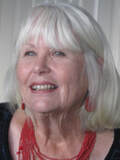
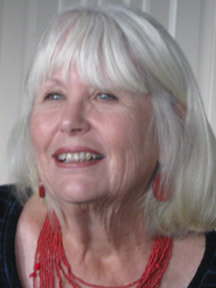

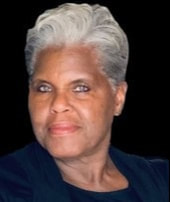
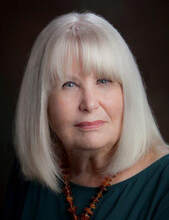
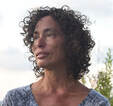

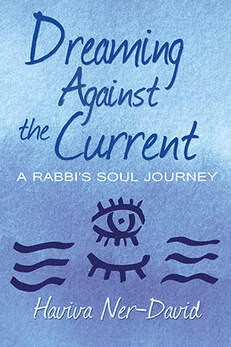
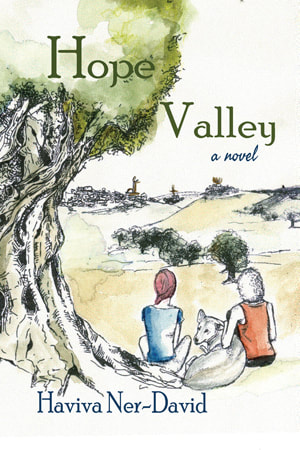
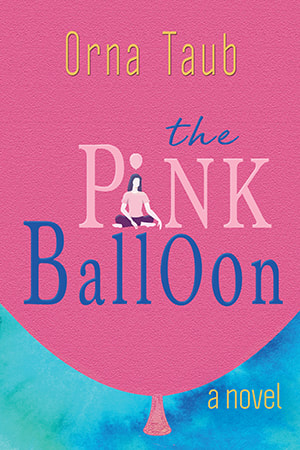
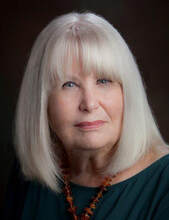

 RSS Feed
RSS Feed